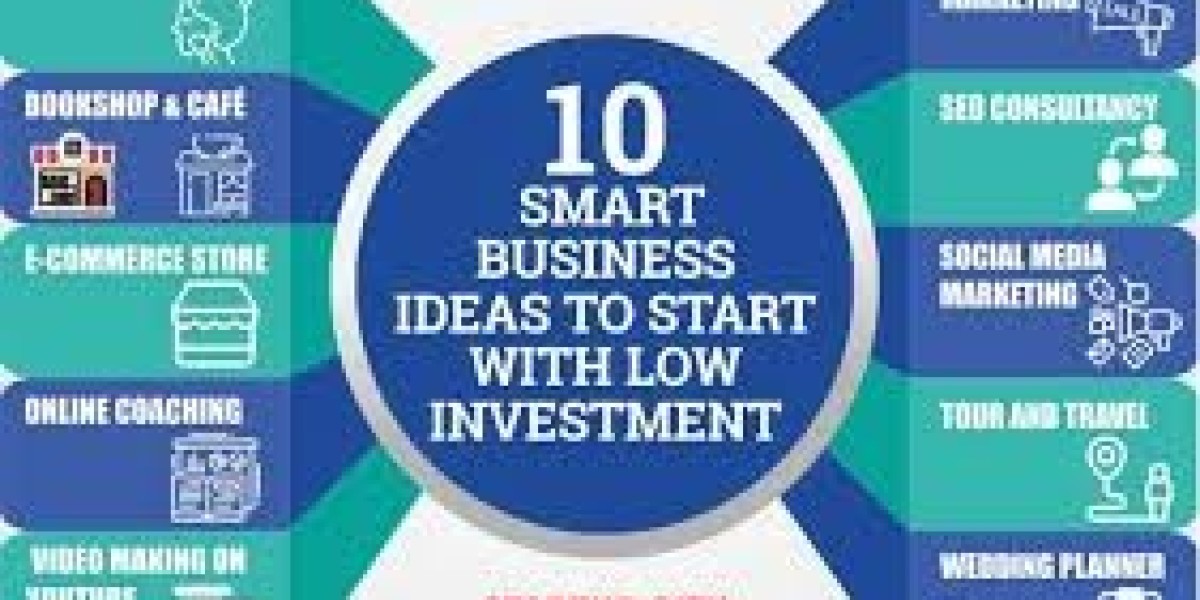You don’t need a huge bank account to become your own boss. In fact, some of the most successful businesses started with little more than a laptop, Wi-Fi, and a solid idea. Whether you're looking to escape the 9-to-5 grind or add a side hustle to your income, there are countless low-cost business opportunities out there. Here's a list of the top 10 low-cost business ideas you can start today.
1. Freelance Writing or Editing
If you have a knack for writing, there’s a massive demand for freelance content creators. Businesses need blogs, website content, marketing copy, and more. You can start by offering your services on platforms like Upwork, Fiverr, or Freelancer, and build a portfolio from there.
Start-up cost: Low (computer + internet)
Skills needed: Strong writing or editing ability, basic SEO knowledge
2. Social Media Management
Small businesses and busy professionals often don’t have time to manage their social media accounts. If you understand how platforms like Instagram, Facebook, and TikTok work—and know how to grow an audience—you can offer your services as a social media manager.
Start-up cost: Low
Skills needed: Social media marketing, content creation, scheduling tools
3. Virtual Assistant
More and more entrepreneurs and online businesses are hiring virtual assistants (VAs) to help with tasks like email management, scheduling, data entry, and customer support. You can work from anywhere and even specialize in areas like bookkeeping, eCommerce support, or social media.
Start-up cost: Very low
Skills needed: Organization, communication, time management
4. Online Tutoring or Coaching
Are you good at math, science, languages, or a specific skill like coding, music, or fitness? Offer tutoring or coaching sessions online through Zoom or Skype. You can work with students directly or list your services on platforms like Wyzant, Preply, or Teachable.
Start-up cost: Minimal (computer, webcam, and internet)
Skills needed: Subject matter expertise, communication
5. Dropshipping Store
In dropshipping, you sell products online without holding any inventory. When someone makes a purchase from your store, the item is shipped directly from the supplier. You only pay for what you sell. Platforms like Shopify and WooCommerce make it easy to set up.
Start-up cost: Moderate (domain, hosting, marketing)
Skills needed: Product research, digital marketing, customer service
6. Handmade Crafts or Art
If you're crafty or artistic, consider selling your creations online through Etsy, Facebook Marketplace, or even your own website. This could include jewelry, candles, digital art, home décor, or customized gifts.
Start-up cost: Varies (depends on materials)
Skills needed: Craftsmanship or artistic talent, photography, branding
7. Print-on-Demand Business
Similar to dropshipping, print-on-demand lets you design and sell items like T-shirts, mugs, and tote bags without inventory. Services like Printful or Redbubble handle printing, packing, and shipping for you.
Start-up cost: Low (design software, marketing)
Skills needed: Graphic design, branding, trend research
8. Blogging or Niche Website
While this takes time to build, a niche blog can become a steady stream of passive income through ads, affiliate marketing, or sponsored posts. Choose a topic you’re passionate about and know something about—fitness, parenting, tech, personal finance, etc.
Start-up cost: Low (domain, hosting)
Skills needed: Writing, SEO, marketing, consistency
9. Pet Sitting or Dog Walking
Love animals? Start a local pet-sitting or dog-walking business. Many pet owners need reliable care while they’re at work or on vacation. Apps like Rover or Wag make it easy to get started and find clients in your area.
Start-up cost: Very low
Skills needed: Responsibility, love for animals, time flexibility
10. Digital Products or Online Courses
Have knowledge others would pay to learn? Package it into a digital product like an eBook, course, or template. Once created, it costs nothing to distribute, and you can earn income around the clock.
Popular platforms for selling:
Gumroad
Teachable
Udemy
Etsy (for digital downloads)
Start-up cost: Low to moderate (depends on tools used)
Skills needed: Content creation, niche knowledge, marketing
Tips for Starting a Low-Cost Business
No matter which idea you choose, here are some quick tips to help you get started:
Start small: You don’t need to quit your job—test the waters first.
Use free tools: Leverage free tools like Canva, Google Workspace, and Mailchimp to reduce costs.
Network online: Join Facebook groups, LinkedIn communities, or Reddit forums to find support and clients.
Stay consistent: The hardest part is often sticking with it—consistency beats perfection.
Conclusion
Starting a business doesn’t have to mean maxing out your credit cards or taking big risks. With today’s technology and platforms, it’s more possible than ever to build a profitable business with little to no startup capital. The key is to start with what you know, use the tools available to you, and stay committed.
Whether you're freelancing your skills or launching an online store, there's never been a better time to become your own boss. Choose one of these ideas, start small, and grow as you learn. Your low-cost business could turn into your full-time success story.








